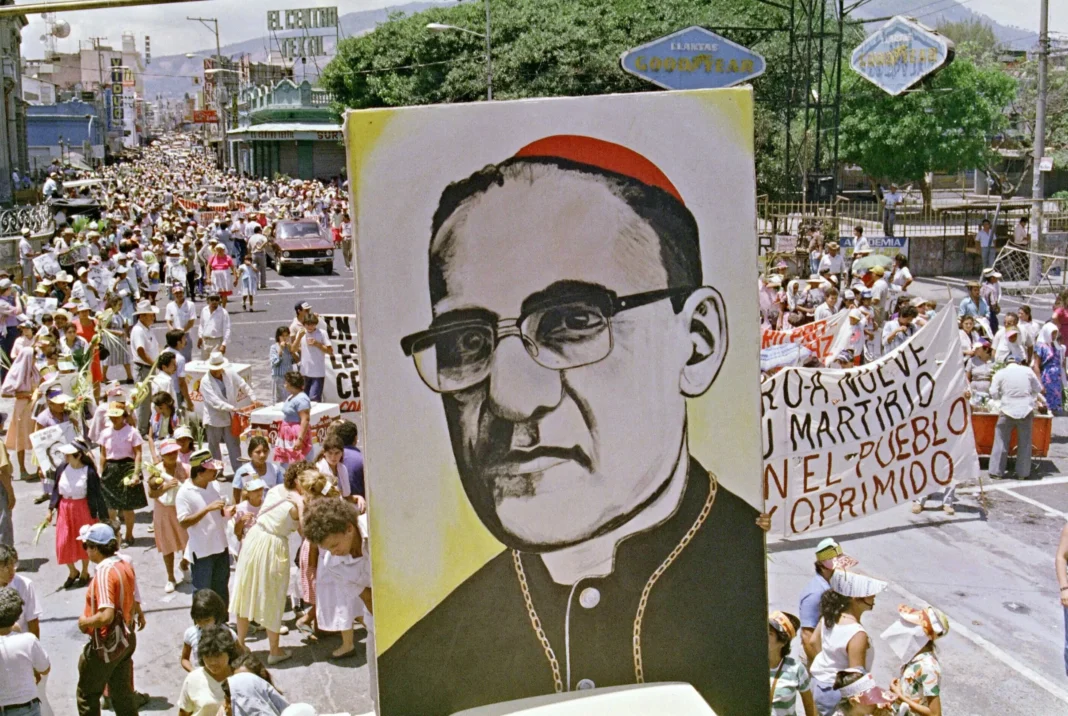Assassinated by El Salvador’s military dictatorship 45 years ago in 1980, Óscar Romero remains an icon of the country’s working class. His legacy continues to inspire and guide the people of El Salvador, as they strive for justice and equality in a country that has been plagued by violence and oppression.
Romero was born in 1917 in Ciudad Barrios, a small town in El Salvador. He grew up in a humble family and was raised with strong Catholic values. After completing his studies, he was ordained as a priest and began his ministry in various parishes across the country.
In 1977, Romero was appointed as the Archbishop of San Salvador, the capital city of El Salvador. At the time, the country was facing a brutal civil war between the military government and leftist guerrilla groups. The conflict had already claimed thousands of lives and the people were living in fear and poverty.
As the Archbishop, Romero used his position to speak out against the injustices and violence inflicted upon the poor and marginalized communities. He became a voice for the voiceless and a defender of human rights. His sermons were filled with messages of love, peace, and social justice, which earned him the love and respect of the people.
However, his outspokenness also made him a target for the military dictatorship. On March 24, 1980, while celebrating Mass, Romero was shot and killed by a government-backed death squad. His death sent shockwaves throughout the country and sparked international outrage.
But even in death, Romero’s message of hope and justice lived on. His funeral was attended by thousands of people, who marched through the streets of San Salvador, demanding an end to the violence and oppression. His assassination only strengthened the people’s resolve to fight for their rights and for a better future.
Today, 45 years after his death, Romero’s legacy continues to inspire the people of El Salvador. His image can be seen in murals, posters, and statues across the country, a symbol of hope and resistance. His words still resonate with the working class, who continue to face poverty, inequality, and violence.
Romero’s life and death also had a profound impact on the Catholic Church. He was beatified in 2015, a step towards sainthood, and is now known as Blessed Óscar Romero. His beatification was a recognition of his martyrdom and his unwavering commitment to the Gospel and the poor.
But beyond his religious significance, Romero’s legacy is also a reminder of the power of the people to bring about change. His courage and determination to stand up against injustice and oppression inspired a whole generation of activists and human rights defenders in El Salvador and beyond.
In recent years, El Salvador has made significant progress towards peace and democracy. The civil war ended in 1992 and the country has seen a transition to a more democratic government. However, challenges still remain, including high levels of poverty and violence, and the struggle for social justice continues.
As we remember Óscar Romero 45 years after his assassination, let us honor his memory by continuing to fight for a more just and equal society. Let us be inspired by his example and work towards a future where all people, regardless of their social status, have access to basic human rights and opportunities.
Romero once said, “Aspire not to have more, but to be more.” Let us aspire to be more like him, to be courageous in the face of adversity, and to stand up for what is right. Let us keep his legacy alive and continue to work towards a better El Salvador for all its people.


